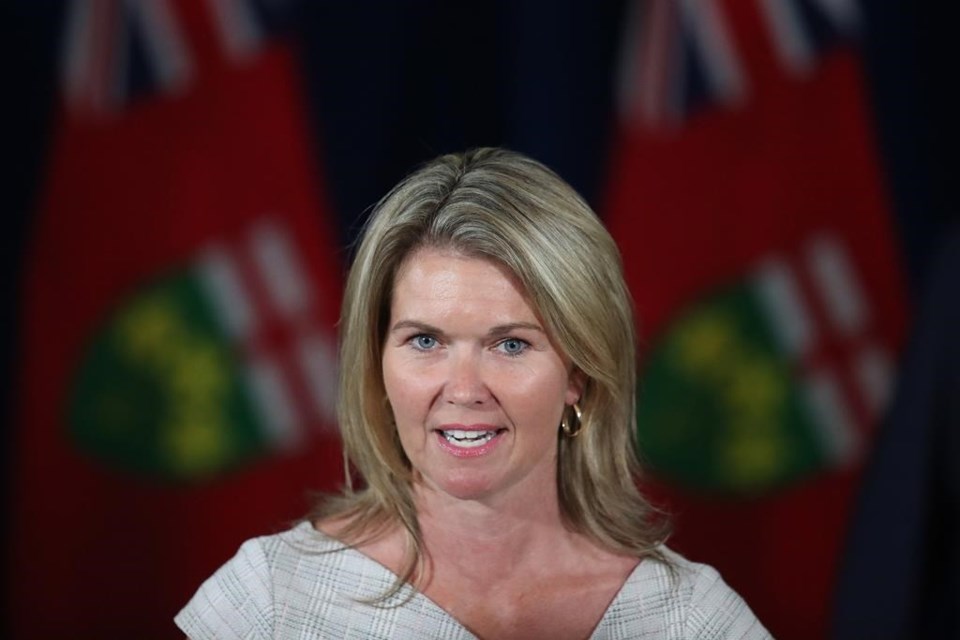TORONTO — Ontario is extending a tuition freeze for public colleges and universities for a fourth year and forming an expert panel to "improve the financial sustainability" of the post-secondary education sector.
Colleges and Universities Minister Jill Dunlop said in a news release Thursday that the freeze will continue for the 2023-24 school year for Ontario students, while allowing post-secondary institutions to raise their fees for domestic out-of-province students by up to five per cent.
The Progressive Conservative government reduced tuition fees by 10 per cent for the 2019-20 school year and has frozen rates since then.
Post-secondary institutions said the freeze is harming their ability to respond to escalating cost pressures.
"The current situation isn't sustainable," Linda Franklin, president and CEO of Colleges Ontario wrote in a statement.
"Ontario must find meaningful solutions that ensure students continue to acquire the professional expertise to succeed in their careers."
Steve Orsini, the president and CEO of the Council of Ontario Universities, said the extended tuition freeze is disappointing.
"Without immediate financial supports and tuition flexibility, the financial pressures for universities will continue to grow, further eroding the sector’s ability to support students," he wrote in a statement.
The council said last year that the 10 per cent tuition cut and subsequent freezes had cost the sector $1.2 billion since 2019 and each additional year of a freeze means universities lose out on $740 million in revenue.
The government's tuition cut was introduced at the same time as the province cut a free tuition program for low-income students.
Dunlop also announced Thursday the creation of an expert panel to provide advice on post-secondary financial sustainability.
"Laying the groundwork for the financial sustainability of the post-secondary education sector will protect it for current and future students, ensuring they can continue to receive world-class education provided by Ontario’s postsecondary institutions,” Dunlop wrote in a statement.
The Canadian Federation of Students' Ontario branch said it is "appalled" the panel doesn't include any students and that the minister has refused to meet with them on "multiple occasions."
"We are tired of a minister who refuses to work or meet directly with us," the group's chairperson wrote in a statement.
"Students are tired of being left out of the decision-making processes that fundamentally impact us. We know post-secondary education cannot be improved without us."
The panel is set to provide advice and recommendations to the minister by the summer on a "long-term tuition fee policy that considers access to and quality of the learning experience," the government said.
Panel members are tasked with looking at enhancing student experience and access, "rewarding excellence," financial sustainability, labour market alignment and affordability.
A report late last year from Ontario's auditor general found that the effect of the tuition reduction and freeze was that universities had to increase their dependence on international student tuition.
"A high reliance on international student enrolment by universities poses risks outside of the ministry’s and the universities’ control, such as the potential loss of a large number of students if individuals from one country were to suddenly not be able to obtain study permits (visas) or otherwise be restricted from entering Canada," Bonnie Lysyk wrote.
This report by The Canadian Press was first published March 2, 2023.
Allison Jones, The Canadian Press
Note to readers: This is a corrected story. Previous version said third year in lede and photo caption.

